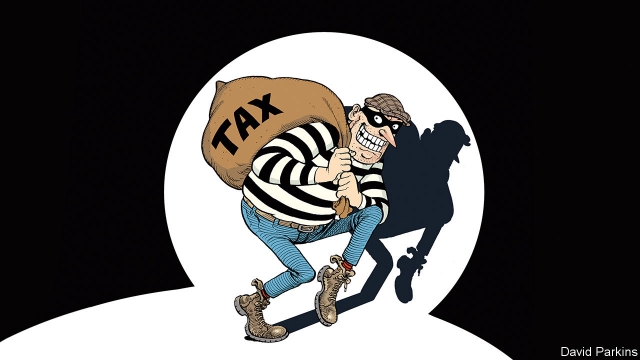Stuck in the past
故步自封
Countries must overhaul their tax systems to make them fit for the 21st century
為適應21世紀新環境,各國須徹底改革稅制
If you are a high earner in a rich country and you lack a good accountant,
如果你在富裕國家,收入很高,卻還沒有一名優秀的會計師,
you probably spend about half the year working for the state.
你可能要花半年的時間為國家工作。
If you are an average earner, not even an accountant can spare you taxes on your payroll and spending.
如果你的收入處在平均水平,那么即使會計師也不能為你免去在收入和花費繳的稅。
Most of the fuss about taxation is over how much the government takes and how often it is wasted.
關于稅收大部分的議論是政府收了多少稅,而又多么頻繁地浪費這些稅。
Too little is about how taxes are raised.
而關于如何提高稅收的議論則鳳毛麟角。
Today’s tax systems are not only marred by the bewildering complexity and loopholes that have always afflicted taxation;
如今的稅制不但混亂復雜,其漏洞一直影響稅收;
they are also outdated.
而且確已成為明日黃花。
That makes them less efficient, more unfair and more likely to conflict with a government’s priorities.
這使得稅制更低效、更不公平,而且更可能和政府的優先級發生矛盾。
The world needs to remake tax systems so that they are fit for the 21st century.
世界各國需要重制適合21世紀的稅制。
Jean-Baptiste Colbert, the finance minister of Louis XIV of France, famously compared the art of raising tax to
法國路易十四時代財政部長讓-巴普蒂斯特·柯爾貝爾,曾將增稅的藝術比作
“plucking the goose so as to obtain the largest possible amount of feathers with the smallest possible amount of hissing”.
“從鵝身上最大限度拔毛,而只讓它發出最低限度的嘶嘶聲”。
Tax systems vary from one economy to another—Europe imposes value-added taxes, America does not.
不同的經濟體稅收制度各不相同——歐洲征收增值稅,美國則不征稅。
Yet in most countries three flaws show how the art of plucking has failed.
但是在大多數國家,有三個欠缺足以表明這種拔毛的藝術是如何失敗的。

One is missed opportunities.
一個不足是錯失機會。
Expensive housing, often the result of a shortage of land, has yielded windfall gains to homeowners in big, global cities.
土地資源短缺導致房價昂貴,全球大城市的戶主因此發了意外之財。
House prices there are 34% higher, on average, than five years ago, freezing young people out of home ownership.
現在的房價平均比五年前高34%,越來越多的年輕人買不起房。
Windfall gains should be an obvious source of revenue,
意外之財應該是顯而易見的收入來源,
yet property taxes have stayed roughly constant at 6% of government revenues in rich countries,
但在富裕國家,財產稅大約還保持在政府稅收的6%,
the same as before the boom.
和房價上漲前并無二致。
Another flaw is that tax sometimes works against other priorities.
另一個不足是稅收有時會和其他優先事項沖突。
Policymakers in the rich world worry about growing inequality, which is at its highest level in half a century.
在富裕國家,政策制定者擔心不平等會逐漸加深,半世紀以來,這種擔憂已達到最高程度。
In the OECD, a group of mostly developed countries, the richest 10% of the population earn, on average, nine times more than the poorest 10%.
經濟合作與發展組織的大部分國家是發達國家,在這個組織中,最富裕的10%人口的收入平均為最貧窮的10%人口的9倍。
Yet over this period, most economies (though not America’s) have shifted the composition of labour taxation slightly toward regressive payroll and social-security levies and away from progressive income taxes.
但在此期間,大部分經濟體(不包括美國)將勞動稅收的組成部分略微向遞減的工資稅和社會保障稅轉移,而不是累進所得稅。
譯文由可可原創,僅供學習交流使用,未經許可請勿轉載。











